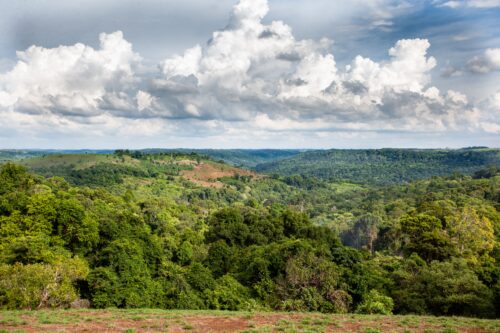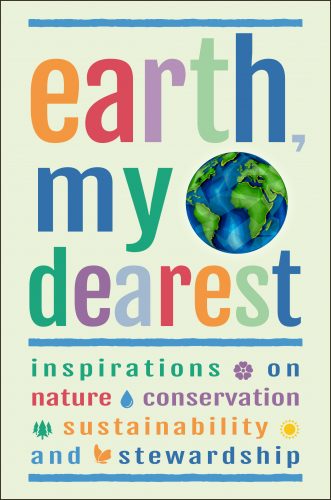Wildlife Conservation Society partners with Everland to expand its portfolio of high-impact forest conservation projects to help address the climate and biodiversity crises

- Everland will provide financing for and market WCS’s global REDD+ portfolio of up to 15 new projects to reduce deforestation, mitigate climate change, protect wildlife, and support local communities.
- Projects could generate at least 10 million tons of carbon emission reductions annually with an estimated value of $2 billion over the next decade.
- WCS REDD+ projects target areas with high positive impacts on biodiversity conservation and local community livelihoods.
A new agreement between the Wildlife Conservation Society (WCS) and Everland will scale a portfolio of forest conservation REDD+ projects to achieve at least 10 million tons of verified emission reductions (VERs) annually with an estimated value of $2 billion over the next decade. Everland will provide funding for the creation, development, and implementation of up to 15 REDD+ projects globally, and serve as the exclusive marketing agency for the VERs generated by the projects.
This collaboration with Everland stems from a mutual interest in scaling REDD+ as a mechanism to halt deforestation, mitigate climate change, protect wildlife, and support local communities through market-based carbon financing.
The program builds on WCS’s long history of working on the ground to save wildlife and wild places in nearly 60 countries worldwide. WCS sees REDD+ as a critical tool for fighting climate change and keeping global warming within 1.5 degrees Celsius—the target agreed to in the Paris Agreement to avoid the worst impacts of climate change.
Through this agreement, WCS will facilitate the development of new projects in collaboration with and on land owned or controlled primarily by national governments, as well as local governments, communities, and private landholders.
Consistent with a recent civil society consensus agreement on high-quality tropical forest carbon credits, WCS and Everland share the goal of transitioning from project-based REDD+ support to jurisdictional or national programs or nesting projects within larger-scale programs where they exist and can maximize emission reductions and mitigate climate change impacts.
Everland is a specialized marketing company exclusively representing a portfolio of some of the most impactful REDD+ projects across the globe that protect wildlife and enhance the well-being of local forest communities, including WCS’s flagship REDD+ project in the Keo Seima Wildlife Sanctuary in Cambodia.
The Keo Seima REDD+ project started in 2010 and protects one of the most important remaining intact forests in Cambodia. It is home to the Indigenous Bunong people and has one of the greatest diversities of species in any protected area in Cambodia. The project has issued over 16.7 million VERs by avoiding over 21,500 hectares of forest loss. Last year, the project achieved a long-standing goal: to become financially sustainable through the sale of its VERs. As part of this project, WCS has helped to secure land and resource tenure for local communities, improve protected area management, and establish sustainable alternative livelihoods.
Todd Stevens, Executive Director of the WCS Markets program, said:
“We must eliminate the source of 10 percent of annual global emissions by keeping forests standing. REDD+ is a means for generating the much-needed financial support for on-the-ground forest protection, wildlife conservation, and local communities. We are excited to partner with Everland on this work. They continue to serve an important role in the success of the Keo Seima project, and they share WCS’s values and ambition to scale REDD+ projects that contribute to the nature-positive mitigation action we need.”
Gerald Prolman, Everland’s CEO and co-founder said:
“Since 1895, WCS has established itself as one of the world’s most trusted, respected, and effective wildlife conservation organizations. We are extremely proud to have been chosen as WCS’s exclusive marketing partner and we’re excited to bring 15 new high-impact REDD+ projects to the market. The projects will help meet the surging demand for high-quality VERs that companies can use toward their climate and SDG targets.”
About Wildlife Conservation Society (WCS)
WCS saves wildlife and wild places worldwide through science, conservation action, education, and inspiring people to value nature. WCS, based at the Bronx Zoo, harnesses the power of its Global Conservation Program in nearly 60 nations and in all the world’s oceans and its five wildlife parks in New York City, visited by 4 million people annually. WCS combines its expertise in the field, zoos, and aquariums to achieve its conservation mission. Through understanding critical issues, crafting science-based solutions, and taking conservation actions that benefit nature and humanity, WCS focuses on the biggest challenges facing long-term conservation efforts: climate change, sustainable financing, economic and food security, and data and science gaps. Visit newsroom.wcs.org. Follow @WCSNewsroom.

















